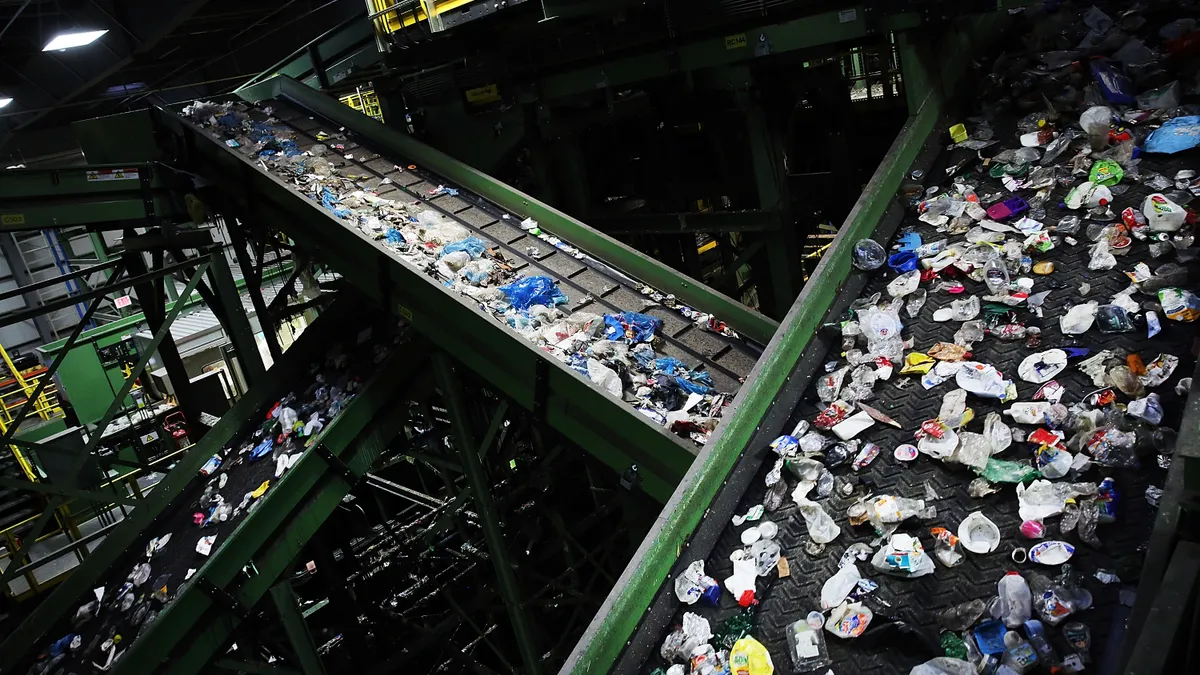The International Solid Waste Association (ISWA) has gained a reputation for taking on some of the waste sector's most complex problems, like closing dumpsites, curbing marine litter and preparing for the Fourth Industrial Revolution. However, for some in the U.S. industry, this can all feel a bit removed from the daily demands of picking up and processing material.
That may have changed last week in Baltimore, when ISWA co-hosted its annual World Congress with the Solid Waste Association of North America's WASTECON. Over the course of three days, U.S. industry leaders had the opportunity to hear more about how their work fit into broader global challenges and often shared the stage to discuss it with their international counterparts. As ISWA highlighted in a series of new reports, larger trends of technological change, a worsening marine litter crisis and the creation of circular economies will all be increasingly relevant for industry professionals in any country.
In the year ahead, ISWA will continue to focus on these key areas while aiming to build on the success of Brazil's plans to close its largest open dumpsite and working to expand membership in areas such as India and various African countries.
Waste Dive sat down with ISWA's two top executives, in separate interviews, to learn more. Antonis Mavropoulos, president of ISWA, is the CEO of Greek consulting firm D-Waste. Carlos Silva Filho, vice president of ISWA, is the CEO of the Brazilian Association of Public Sanitation Companies. Here is a collection of their thoughts on how the U.S. can play a larger role in answering some of the world's most challenging waste questions.
Embrace the climate change conversation
A growing number of private companies and state or local governments of varying sizes have taken a more active role in reducing greenhouse gas emissions to mitigate the effects of climate change. Mavropoulos views this "global movement" as one of the few good pieces of environmental news in recent years.
This has taken many forms — changing procurement policies, upgraded fleet technologies, more ambitious diversion goals. Mavropoulos sees the waste sector at the center of much of this work and has called for it to take on an even larger role.
"Speaking for the waste management sector, I have to say that we can be proud...because they actually contribute with their work to daily reductions of the CO2 footprint," he said. "As an example, in Europe, 20% of the CO2 reduction between 2000 and 2020 is mainly attributed to the waste management sector. This is a role model for the whole world."
Become an active and honest participant in the circular economy discussion
Just because the waste sector is already playing a role doesn't mean there isn't much more to be done. ISWA has called for more collaboration between service providers, manufacturers and policymakers about how to create a more sustainable packaging system. Mavropoulos believes that the best way to start is to focus on specific material streams rather than getting overwhelmed by the broader goal. This means going sector by sector, product by product, and examining opportunities for change. In many cases, this may also mean thinking outside of traditional market-based recycling approaches.
"We have to find ways to sustain recycling for selected valuable products, for products that provide added value and help us to save fossil fuels and materials. We have to find a way to sustain this type of recycling," he said. "If it was a matter of a private sector company, they already would have done it. As long as it is a matter of waste, we have to organize it."
This is as seen as an ongoing process that each country will have to work through at their own pace, recognizing the need for achievable interim steps along the way. Setting big targets can help spur innovation, but may not always be realistic. For example, Silva Filho said Brazil adopted a new waste recovery hierarchy in 2010, but has yet to truly enforce it. He feels many countries live in different realities when it comes to long-term planning for achieving a circular economy, or anything close to it.
"Sometimes a solution is not within markets. It needs another intervention."

Antonis Mavropoulos
President, ISWA
"Half of the world is still working to have better recycling rates. Brazil and the whole of Latin America, Southeast Asia. Even the United States," said Silva Filho. "Then we have another world — I would say Europe, Japan — that reached certain levels and they are talking about new plastics economy, circular economy, secondary raw materials, and so on. What I see is that there are several people who try to get inspirations from this future and better world and implement that in our countries, but without taking the required steps to shift from one system to another system."
Create national policies and limit landfill habits
While the steps forward will differ around the world, ISWA sees a general need for each country to become more independent when it comes to processing recyclables. This has become even more apparent in recent months, as the effects of China's new scrap import policies and bans begin to spread. In Mavropoulos' view, this is another example of why it is "absolutely a mistake that there is no national policy for waste management" in the U.S. In the same way that coordination is needed to address global problems, he feels it is also needed to address domestic ones.
"You have a problem in the country and you cannot expect each client, each municipality, each state, to confront it itself unless you give them a minimum framework to move," he said. "Sometimes a solution is not within markets. It needs another intervention."
The proliferation of landfills in the U.S., that collectively still have many decades of cheap and available capacity, is also seen as a hindrance to recycling progress. Silva Filho said that in this way the U.S. is like his country, despite having higher recycling rates.
"In Brazil, I would say that we have a very similar situation with the United States. Large country with several available areas and the sanitary landfills are still the cheapest disposal option. So there isn't too much argument to go against sanitary landfills in our countries," said Silva Filho.
Though as urban centers grow, this has becoming increasingly untenable in both countries and may require a larger national conversation. In Silva Filho's view, that conversation should include all possible options for disposal, including waste-to-energy.
"...Within our countries we have very big city centers, urban areas, with no more area available," Silva Filho said. "The step forward is to evaluate all of these alternatives without passion, without an ideological mindset."
Take a bigger picture view on China
China's announcement over the summer that multiple commodity categories would soon be banned, followed by a tighter contamination specification and overall restriction of import licenses, has shocked waste industry professionals around the world. For the U.S., this has already begun to cause disruptions in local programs and more are expected. It has also spurred discussions of rebuilding domestic processing capacity. While many point out that this will take time, Mavropoulos said that it is also the smartest long-term move.
"...There is the principle of proximity which says that waste has to be treated as close as possible to the point it's generated. So if you take it seriously, we have to be frank — moving recyclables to China is not the right way to deal with the problem. Each country has to develop its own processing capacity for recyclables."
This may seem too far off to assuage the fears of companies and municipalities in the U.S. that will face tough times ahead. Markets are also expected to grow in other countries as a result, but none that can match the capacity China once provided. As the U.S. waste sector works through these challenges, Mavropoulos said it must also recognize the opportunities — and also recognize why China is doing this in the first place.
"I believe that the Chinese government has planned this movement a long time ago," he said. "I think they are doing the right thing for them. It creates a global impact. It will make a turbulence in the recycling market, but it's the right thing for them. Maybe it will take one or two years, but finally the market will adapt until the next turbulence, which we don't know what it will be."

















